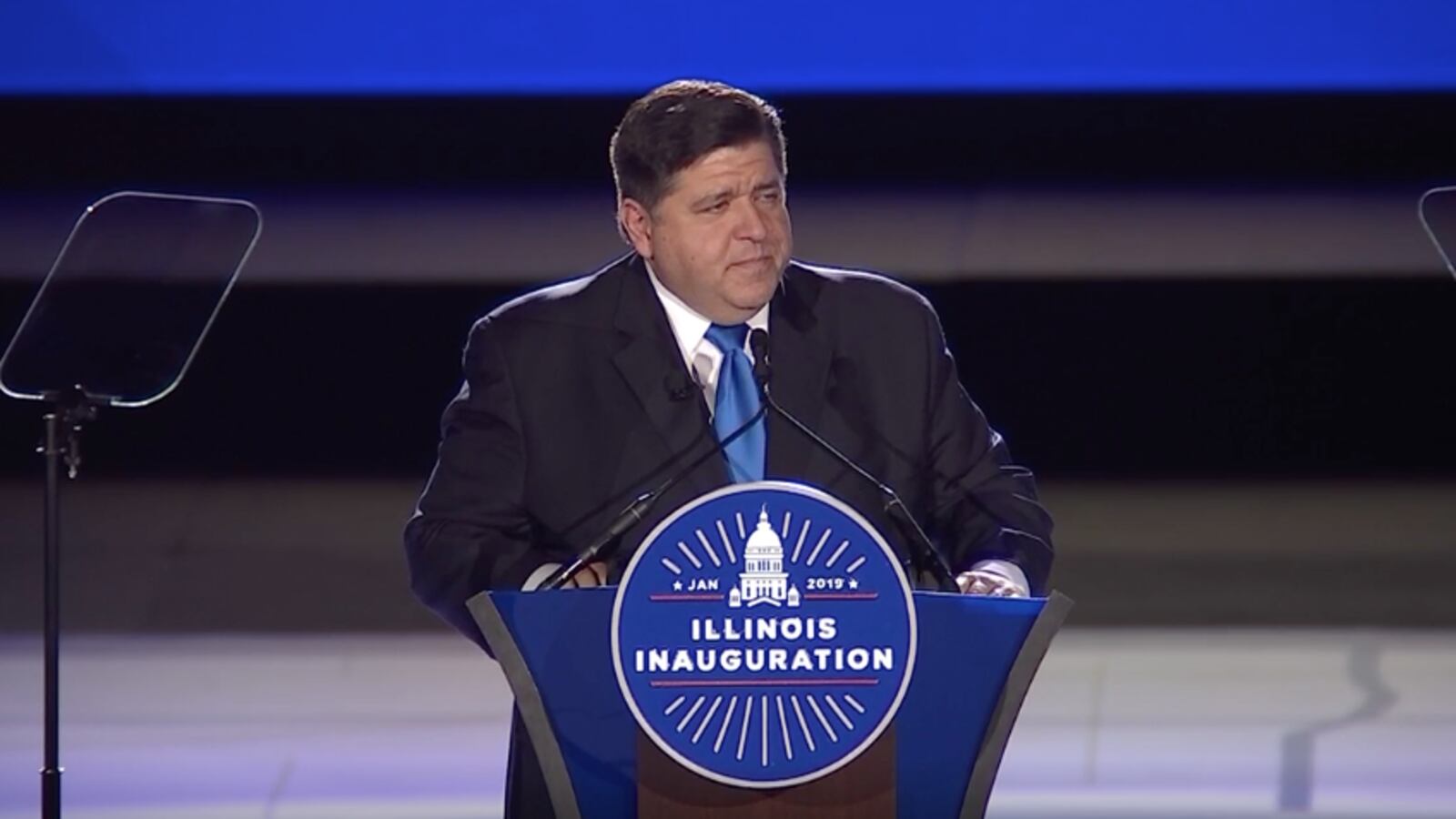In his first speech after taking the oath as Illinois governor, J.B. Pritzker made few concrete promises on education, focusing instead on the task of balancing the Illinois budget, overhauling the state tax code, and finding new revenue — starting with legalizing marijuana.
Pritzker previously has said that revenues from legalized marijuana would go, in part, to schools.
In Monday’s speech, he mentioned schools only four times. Even then, he listed them among several examples of more widespread improvements and investments.
“We will approach education with a holistic mindset – recognizing that students do best in community schools where teachers are paid well and where kids start learning at the earliest ages,” said Pritzker, a philanthropist who campaigned in part on increasing funding for schools and passing a universal pre-K platform statewide. “And our economy grows when vocational training, community colleges and universities are strong.”
On the campaign trail, Pritzker often spoke from rural towns about fixing the state’s crumbling infrastructure, from bridges and roads to technology in many parts of the state. He promised to bring high-speed broadband internet access to “every corner of Illinois” — a pledge that would benefit many rural school districts.
As a candidate, he also put out an early childhood education plan that would, in his words, pave a path to universal preschool for 3- and 4-year-olds — something no other state has been able to fully execute. But Monday’s speech made no mention of universal pre-K or finding more money for school districts statewide. Illinois passed a new education funding formula in 2017, but hasn’t been able to meet its minimum per-pupil funding levels that it promised for each year.
Pritzker told Chalkbeat in October that contributing more money to education would require solving the state’s longstanding budget problems.
Illinois is expected to enter fiscal year 2019 with a budget deficit of more than $1 billion.
“In order for us to change the way we fund schools, I want to remind you that, in the average state in the United States, about half the money comes from property taxes and about half comes from state taxes,” Pritzker told Chalkbeat last fall. “But we’re at about 25 percent from the state and 75 percent from property taxes. We need to directionally head toward 50-50.”
In the speech, the new governor focused on beginning “with our most basic responsibilities” — a pledge that drew cheers from a crowd gathered at the Bank of Springfield Center in Springfield. “We will propose, debate and pass a balanced budget this year.”
Beyond getting the state’s fiscal house in order, Pritzker also spoke about the U.S. signing the Paris Agreement on climate and, obliquely, about gun control: “We allow our schools, our movie theaters, our hospitals, our neighborhoods to become battlefields – legally accessible by the weapons of war.”
The billionaire businessman has long contributed to many early education causes. Advocates have hoped he would move quickly on an early education agenda, including overhauling the state’s struggling child care assistance program. But he made no mention of that today.
In November, shortly after the election, Chalkbeat asked 10 Illinois educators what they most wanted to see from the governor. Their responses ranged from pleas for more staffing to more counseling and mental health services.
The Service Employees International Union, which represents some early childhood education providers, struck a hopeful tone in its statement on the inauguration, calling the new governor an ally for working families.
“His election to the state’s highest office was an overwhelming mandate for key issues that he ran on,” the union said, including “expanding key programs such as home care and child care that the state’s most vulnerable residents depend upon.”
The governor has named several heavy-hitters to his transition team, including former Chicago Board of Education Vice President Jesse Ruiz and early-childhood expert Barbara Bowman. He also created a 35-person advisory group, which included Chicago schools chief Janice Jackson, to build and support his education agenda for the next four years..
Pritzker most directly addressed public education Monday when he tied it to his own story, describing schools as a cornerstone of his immigrant great-grandfather’s success.
“Public policy grounded by kindness offered a penniless immigrant to Illinois a bed to sleep in, a public school education and the opportunity to succeed,” said Pritzker, whose family is now among the wealthiest in the state. He continued, “130 years later, his great-grandson just took the oath of office to be governor of this great state.”


